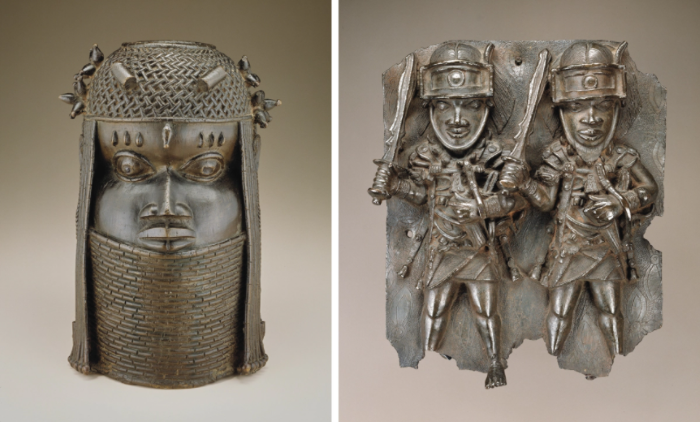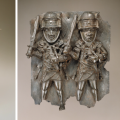Benin bronzes returned to Nigeria
Secretary Bunch announces the return of the artistic treasures under the Smithsonian’s new ethical returns policy.

I am pleased to announce that the Smithsonian has made its first deaccession and return of objects from our collections under our new ethical returns policy. In a ceremony today at the National Museum of African Art, the Smithsonian formally transferred ownership of 29 Benin bronzes to the National Commission for Museums and Monuments in Nigeria. The bronzes, which were part of the museum’s collection, were stolen from Nigeria during an 1897 British raid on Benin City. The Smithsonian’s Board of Regents voted to deaccession the bronzes in June in keeping with the ethical returns policy, which authorizes Smithsonian museums to return collections to the community of origin based on ethical considerations, such as the manner and circumstances in which the items were originally acquired.
I am pleased to announce that the Smithsonian has made its first deaccession and return of objects from our collections under our new ethical returns policy. In a ceremony today at the National Museum of African Art, the Smithsonian formally transferred ownership of 29 Benin bronzes to the National Commission for Museums and Monuments in Nigeria. The bronzes, which were part of the museum’s collection, were stolen from Nigeria during an 1897 British raid on Benin City. The Smithsonian’s Board of Regents voted to deaccession the bronzes in June in keeping with the ethical returns policy, which authorizes Smithsonian museums to return collections to the community of origin based on ethical considerations, such as the manner and circumstances in which the items were originally acquired.
I was joined at the ceremony by Ngaire Blankenberg, director of the National Museum of African Art; Kaywin Feldman, director of the National Gallery of Art; Lai Mohammed, Minister of Information and Culture of Nigeria; and Prince Aghatise Erediauwa, representing the oba,or ruler, of the Kingdom of Benin. The ceremony was held in conjunction with the National Gallery of Art, which returned Benin bronze from its own collection.
In addition to the National Museum of African Art’s collection, the Smithsonian’s National Museum of Natural History has a collection of 20 Benin bronzes. Provenance research for that collection has been undertaken and will be submitted to the Board of Regents as a request to deaccession bronzes obtained during the 1897 expedition and return them to Nigeria. In 1897, during a British raid on Benin, the royal palace was burned and looted, and the oba (ruler) was exiled. The British confiscated all royal treasures, giving some to individual officers and taking most to auction in London. The estimated 3,000 objects eventually made their way into museums and private collections around the world.
Not only was returning ownership of these magnificent artifacts to their rightful home the right thing to do, it also demonstrates how we all benefit from cultural institutions making ethical choices. Sharing knowledge and stewardship with origin communities will help us better understand and preserve important cultural heritage such as the Benin bronzes and illuminate it for future generations in the United States and around the world.
Posted: 13 October 2022
-
Categories:
African Art Museum , Art and Design , From the Secretary , News & Announcements








